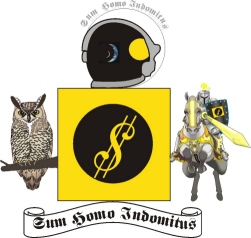|
L. Neil Smith's THE LIBERTARIAN ENTERPRISE Number 318, May 8, 2005 V-E Day The Hitchhiker's Guide to the Galaxy
Attribute to The Libertarian Enterprise http://www.ncc-1776.org/ I wasn't born yesterday, and I didn't just fall off of a turnip truck (although I've often wondered what the hell that expression means, exactly). I've been alive and kicking the better part (and the worst part, too) of sixty years, and boy, does it ever hurt to say that! By now I think I have a pretty good handle on what's going on around me. I've put whipped cream in my shorts, as Steve Martin used to say, and done terrible things to my dog with a fork. Weirder than that, I believe for the most part, that I understand my fellow human beings. I recognize that everybody has different tastes. My wife observes that it's easy to write a negative Utopia, like Brave New World or 1984, because people tend to want to avoid the same things: pain, confinement, starvation, extreme cold, or extreme heat. It's harder to write a positive Utopia, like The Probability Broach (just to name a random example), because individuals are drawn to different pleasures. The joy I feel sighting a long-barrelled handgun, pulling the trigger, and waiting for the bullet to go Clank! on a steel cutout of a desert ram a hundred yards away leaves others, even other shooters, cold. But there are still aspects to individual preference that have me scratching my head from time to time. A case in point, the reason I'm writing this essay, is the recent theatrical release of the "Disney version" of Douglas Adams' celebrated The Hitchhiker's Guide to the Galaxy. Only a little while ago, I might have said "overly celebrated". I read Adams' flagship work not too long after it was published decades ago, and I didn't like it much. It seemed glib for the mere sake of glibness, too cynical, and I felt—because I'd been brought up, literarily, to value a certain parsimony in the genre—that Adams didn't really understand what science fiction is supposed to be all about. H.G. Wells had said that a good story should involve only one major change—a man awakens after sleeping for hundreds of years; Martians decide to attack the Earth; chemistry can render a man invisible; time travel can be accomplished with Victorian technology—and that everything else in the story should develop from that. The science fiction I liked best, as I grew up—Robert Heinlein, Arthur Clark, Isaac Asmimov, H. Beam Piper—followed that guideline pretty well. When Adams' bestselling book became a miniseries on British television and exported to the states, I was equally unimpressed. I could think of a dozen—no, make that a hundred—other, worthier novels by other, worthier writers that would make better television. I soon became even more weary of Marvin the robot than I would later be with Jar-Jar Binks. On top of everything else that was wrong with the book, the miniseries seemed to revel in the fact that it didn't make sense. That should have been a clue, but I missed it, somehow. To make things worse, nearly everyone I communicate with online has expressed disappointment, for a wide variety of reasons, with the new version. Seeing that most of these folks are big fans of my books, and obviously have excellent taste, I took what they wrote pretty seriously. And that's the ultimate source of my perplexity, because none of my friends seem to have seen the same Douglas Adams movie I did. And so it was with considerable misgiving that I went to see the new offering last night with my wife, our teenage daughter, and an old friend, mostly because our daughter had implored us to come see it with her. We sat down front in the third or fourth row (not usually my favorite place to sit) because the sixteen-plex house was otherwise filled. And from the opening titles, and the dolphins' silly song, I was hooked. I kept waiting for the disappointing part, but it never arrived. I'm not going to try to summarize the remainder of the movie here, partly because the story is pretty well known, and partly because the new movie is full of delightful surprises and a strangely inexorable logic that I understood much better once I realized that the whole thing sprang from the Monty Python generation. Everything snapped into focus then, and I had more fun at the movies than I've had since I first saw Lilo and Stitch, possibly the best animated movie ever produced. At the end, the audience applauded, something we'd only seen before with Toy Story and The Patriot (people applauded in the middle of Independence Day, when aliens destroyed the White House). Suffice it to say the Vogons and their culture were brilliantly realized; so were spaceships and other technology (if you've read of the Gunjj Uncertainty Drive in Tom Paine Maru, the Improbability Drive won't throw you); and we Smiths will be going back to see it again (we saw Lilo and Stitch in theaters three times) as soon as possible. And I will never, never travel anywhere again without my trusty towel.
TLE ADVERTISER
The Indomitus Report offers insights for traders, investors, and enthusiasts on being sovereign, free market money, the space frontier, space launch technology, new country developments, and longevity. These are topics of particular interest to the author, and ones on which he is well qualified to comment. If these topics interest you, please subscribe now. Help Support TLE by patronizing our advertisers and affiliates.
|
